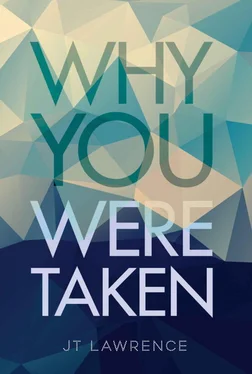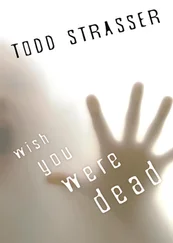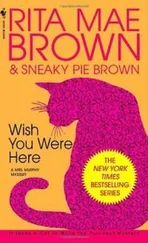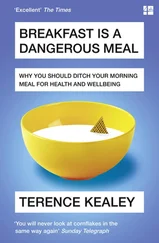‘You wanted to clone us?’ asks Seth.
‘Not clone you as such… more like, try to isolate the genes you carry that makes you… different. Special. Then we could recreate those genes in a lab and, well, graft them into new babies being born. Can you imagine?’ he asks, eyes sparkling, ‘Can you imagine what our country could be if all our citizens were healthy, clever, strong, creative?’
‘So that’s what the Fontus thing is about,’ says Seth. The doctor throws him a sharp glance. ‘GeniX. Eugenics. You audacious motherfucker.’
Van der Heever shifts in his chair. ‘The word eugenics has become unpopular of late.’
‘Perhaps because it’s an archaic, racist, ethically reprehensible practice,’ says Kirsten.
‘What we do isn’t racist,’ he says.
‘Really?’ asks Kirsten. ‘Is that why you are using the country’s drinking water to practically wipe out South Africa’s black population?’
‘No,’ says the doctor, ‘not the black population. The poor, uneducated population.’
‘This is post-apartheid South Africa. Most of the poor people are black.’
‘Merely coincidence,’ shrugs the doctor. ‘Many non-whites are rich. In fact, very rich, not so?’
‘Coincidence?’ says Seth, ‘we have that fucked up legacy because of people like you who dabble in social engineering.’
James manages to get Kirsten’s attention without anyone else in the room noticing.
‘Listen,’ Dr Van der Heever says. ‘Fertility rates are plummeting the world over. It’s a well-known fact that in first world countries infertility is most prevalent in the educated and employed strata – we may even go as far as to say – the intelligentsia. The higher IQs go, the less chance of procreation. To add to that, we have the Childfree Movement: Ambitious couples are choosing to prioritise their careers and lifestyles over starting families. And yet the world’s population is still mushrooming out of control. People with limited resources, limited faculties, are reproducing, putting a huge strain on the world’s – finite – reserves.’
James wiggles his finger to draw her eye down, then, barely moving, he points at his shirt, the couch, his jacket, then touches his hair.
‘It’s a catastrophe waiting to happen,’ says the doctor. ‘So, the three of us,’
‘The Trinity?’ asks Seth.
‘The Trinity,’ he says.
Kirsten, frustrated, looks away, but James keeps staring at her. When she looks at him again he does the exact same thing. Shirt, couch, jacket, hair. He actually points twice at the couch, which she missed first time around.
‘We met in varsity,’ says the doctor, ‘took the same ethics class in first year. The debate question was: should South African citizens be required to obtain a permit before they procreate? This is, after all, what people do in Europe and other such countries, when they want to adopt a pet, an animal. There is a battery of psychological tests; a home screening. The system works well. The whole class was in an uproar: of course not! everyone yelled. What about human rights? The constitution! But the three of us argued in favour of the hypothesis. Human rights on the one hand, quality of human life on the other.’
Shirt, couch, couch, jacket, hair.
Seth wonders how many times the doctor had given this impassioned speech; how often he rehearses it in the shower, or while shaving.
‘When tap water became undrinkable, it came to us. It was such an elegant solution. Dose only the state-subsidised drinking water, and leave the more expensive waters pure. If the privileged citizens drink Hydra for whatever reason, and find they have problems conceiving, they have the means to get help. Fertility clinics abound.’
‘It’s cruel. Barbaric.’
‘Nature is cruel, Miss Lovell. Do you know that the embryos of sand tiger sharks kill and eat their siblings in utero? It’s the epitome of survival of the fittest. You can’t fight evolution.’
‘Children may be the only gifts a poor family has.’
The doctor laughs.
‘Ah, now you’re being sentimental. What about the burden those ‘gifts’ cause the family, and the country? The planet? What about those children who have to be brought up in dire circumstances? They fall through the cracks. Before we started implementing The Program the situation was reaching breaking point. Hundreds of babies being born every day and South Africa’s education system was broken.
‘Do you know what a broken education system does? It puts people on the street. Criminals. Beggars. Infants were being hired for the day by professional street beggars to garner more sympathy from drivers. There were newborns for sale, advertised in the online classifieds! Other babies were lost on crowded beaches never to be claimed, left in dumpsters, or worse.
‘In May, 2013, I was having a personal crisis. Wondering if my work would ever make a real difference. In that month two abandoned babies were found: one wrapped in a plastic bag, burnt. The other was stuck in a sewage pipe – his mother had tried to flush him down the toilet. A healthy newborn! And you talk to me of barbarians. The bottom line was that children were too easy to come by, often unwanted, abused, neglected. The Trinity vowed to take a stand against their suffering. It was – is – incredibly personal. We all have our own stories. Christopher Walden was brutally sodomised – raped – by his priest at a church camp. He managed to escape to a nearby house and use their telephone to call his parents. You know what they did? Told him to stop making up stories and go back to camp. Then they called the priest and told him where he was.’
The doctor walks over to Mouton.
‘Mouton,’ he says, now with compassion in his voice. ‘Show them your arm.’
For the first time, Mouton is hesitant to obey orders.
‘Show them,’ says the doctor. ‘Help them to understand the work we are doing here.’
Mouton sets his jaw and lifts the sleeve of his shirt, revealing the entire burn scar. It travels from his wrist to his armpit. A swirling motif of shining vandalism.
‘That’s not one burn. It’s not from a once-off childhood accident. Marius’s father used to hold his arm over a flame for punishment every time he cried, because “Men Don’t Cry”. A candle, the gas stove, a cigarette lighter, whatever was handy at the time. It started on his first birthday.’
Mouton pulls his sleeve back down. Shirks his shirt into place.
‘My scars aren’t so obvious,’ says Van der Heever, ‘my father preferred the crunch of breaking bones. That, and psychological abuse. Once, my dog, the only friend I had, followed a farmworker home. My father was furious. That night I put out extra food out for him, for when he came home. The next morning, when he returned, galloping and barking and happy to see us all, my father shot him in the head. The dog had been disloyal, he said. It was to teach me the value of loyalty. I was six years old.’
He takes a breath, lifts his glasses, rubs the bridge of his nose.
‘I’m sure you can’t imagine that now. It was before your time. Babies were seen as… expendable. Too many to go around, and most born to undeserving parents. Abuse was inevitable. Unchecked procreation was a scourge on our society. I knew when I heard that story about the baby being flushed down the toilet… I knew then that my work was vital.’
Shirt, couch, couch, jacket, hair. Blue, brown, brown, grey, yellow.
‘Don’t you see?’ he asks, ‘what we planned so long ago, what we have been working towards, is finally starting to come to fruition. Peace and Purity. By tamping off the birth rate we have solved a host of societal ills. There are no more abandoned babies. Schools now have enough books and tablets and teachers and space for their learners, and children are looked after and cherished. Fewer uneducated people means less unemployment, less crime, less social grants. More tax money to invest in the future of the country. Better infrastructure, better schooling, better healthcare.’
Читать дальше






![Питер Джеймс - Wish You Were Dead [story]](/books/430350/piter-dzhejms-wish-you-were-dead-story-thumb.webp)




